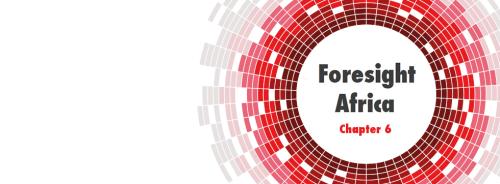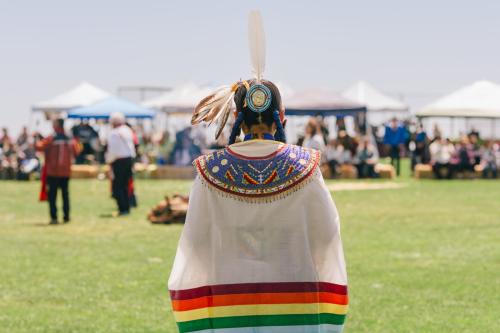Below is an election spotlight from Chapter 6 of the Foresight Africa 2017 report, which explores six overarching themes that provide opportunities for Africa to overcome its obstacles and spur inclusive growth. Read the full chapter on upholding good governance here. For more on African political transitions, see our interactive African Leadership Transitions Tracker.
 Some regime changes in Sub-Saharan Africa in 2015-2016 augur signal a deepening and institutionalization of democracy in the region. However, that has not been true everywhere: In Burundi, incumbent President Pierre Nkurunziza sought and obtained a controversial constitutional amendment that paved the way for him to win another term in office, plunging the country into a political, economic, and humanitarian quagmire. In 2017, two elections—Rwanda and Kenya—are likely to have significant impact on peace and security, governance, and economic growth and development in this important region. Rwanda is reviewed below.
Some regime changes in Sub-Saharan Africa in 2015-2016 augur signal a deepening and institutionalization of democracy in the region. However, that has not been true everywhere: In Burundi, incumbent President Pierre Nkurunziza sought and obtained a controversial constitutional amendment that paved the way for him to win another term in office, plunging the country into a political, economic, and humanitarian quagmire. In 2017, two elections—Rwanda and Kenya—are likely to have significant impact on peace and security, governance, and economic growth and development in this important region. Rwanda is reviewed below.
Rwanda: August 2017
Why are we talking about Rwanda?
Rwanda’s 2017 election is worth watching for many reasons: Rwanda is a key player in political stability and economic growth and development in the African Great Lakes Region. President Paul Kagame has improved stability and economic growth in post-genocide Rwanda and many believe that another term in office will allow him to move the country, and perhaps the region, to middle-income status and stable democracy. Then again, many international organizations, including Human Rights Watch, believe that Rwanda under Kagame has evolved into a one-party state. There is a growing fear that Kagame, despite his economic achievements, has become increasingly intolerant of political opposition and has used “genocide prevention” as a strategy to limit competitive politics in the country.
Cognizant of the ethnic-induced genocide, the Rwandan constitution[1] specifically prohibits the formation of political organizations based on “race, ethnic group, tribe, clan, region, sex, religion or any other division which may give rise to discrimination.” Many civil and human rights groups have argued[2] that this constitutional clause, and other laws enacted by the country’s parliament, have granted the government enormous powers to stunt political development.
In the aftermath of the 1994 Rwandan genocide, in which as much as 20 percent of the population—Tutsis and their Hutu sympathizers—were massacred, the Tutsi-backed Rwandan Patriotic Front (RPF), which had ended the genocide, transformed into the ruling political party. Kagame first served as vice president and minister of defense, then became president in 2000. In 2003, the country approved a new constitution and Kagame was elected president. Then in 2010 he was re-elected for a second seven-year term in an election that was peaceful, although somewhat criticized due to the government’s suppression of opposition political parties. Kagame was expected to step down after his mandate ends in 2017; however, in December 2015, Rwandans approved a constitutional amendment allowing him to potentially remain in office until 2034.[3] Officially, the president has stated that the idea of the constitutional amendment was actually a grassroots initiative, with a petition said to have been signed by 60 percent of voters. Many critics, however, argue that it is difficult to determine whether the petition actually represents the voters’ free will or not.
Who are the major players?
Today, Rwanda is one of the safest countries on the continent and has an economy that is relatively healthy and continues to grow.
Kagame has brought a lot of social and economic success to his country, including implementing free basic education, slashing maternal and child mortality by more than 50 percent, and improving opportunities for entrepreneurial activities, among many other accomplishments. Today, Rwanda is one of the safest countries on the continent and has an economy that is relatively healthy and continues to grow.[4] Some Rwandans argue that a third term would allow Kagame to consolidate those gains and deliver even more improvements. Many citizens believe he is the only person capable of maintaining peace within the country. Even opposition leaders acknowledge that Kagame and the RPF are very popular.[5]
These successes have come at a cost, though. Opponents fear that a third term for Kagame’s suffocating and military-style approach to governance could derail the maturation of the country’s embryonic democracy. Many observers argue that the RPF has created a de facto one-party state. Officially, Rwanda has a lot of opposition political parties, though most are rarely critical of the RPF. Frank Habineza, founder and chairman of the Democratic Green Party (DGP), is the country’s main opposition leader. The Greens have indicated that they want to become a genuine opposition party, capable of effectively challenging the government on public policies and eventually competing against the incumbent regime.
The DGP began facing many problems immediately after its founding in 2009, the most important being that it was unable to receive official recognition as a legitimate political organization. In 2013, the party was finally granted recognition,[6] but it continued to struggle financially and found that the police often interrupted the party’s assemblies. In addition, several high-profile DPG leaders have disappeared[7] or been murdered[8] in the past few years.
The Greens have made an effort to function as an effective opposition to the government. In fact, the party brought action against the third-term constitutional amendment before the Rwandan Supreme Court. While the court rejected the argument, Habineza maintains that either the people were misled or there was simple fraud in obtaining the alleged 3.7 million signatures requesting that the constitution be amended.
What might happen in 2017?
Should Kagame choose to run in 2017, he would most likely win by a significant majority. Nevertheless, this could prove disastrous to the democratic legacy that he and his party have built since 1994.
What happens between now and the August 2017 election could set an example for other countries in the region.
Although the United States has been a strong supporter of Kagame, especially with respect to the president’s ability to bring peace and economic growth to the country, the U.S. government has not supported efforts by Kagame to extend his term in office. U.S. officials, instead, are asking him to step aside. What happens between now and the August 2017 election could set an example for other countries in the region. Indeed, some observers believe that keeping Kagame in office could produce violence in the future, especially if it becomes evident to opponents that the new law would relegate them to the political periphery until at least 2034. Some critics even fear that Kagame’s victory could provoke rivals to forcefully extricate him, an action which could lead to civil war.[9] Of course, it is not yet too late—despite the change in the constitution, the president can still step aside and allow a younger group of individuals to contest the presidency and lead the country. He can then retire to serve as an elder statesman.
The deepening and institutionalization of democracy in a country begins with civil servants and politicians. If they are not willing to respect the laws but are instead eager to either subvert or change them in order to maximize their personal interests, they should not expect ordinary citizens to adhere to the rule of law. The practice of constitutionalism can and does interfere with the personal ambitions of not just political elites, but of virtually all citizens. But that is the price that citizens must pay for all ethnocultural groups to live together peacefully with equal opportunity for self-actualization.
[1] “The Constitution of the Republic of Rwanda” 26 May 2003. https://www.ilo.org/dyn/natlex/docs/ELECTRONIC/64236/90478/F238686952/RWA64236.pdf.
[2] Human Rights Watch. “Rwanda: Human Rights Developments.” Hrw.org. Human Rights Watch, https://www.hrw.org/legacy/wr2k3/africa9.html.
[3] “Paul Kagame’s third term: Rwanda referendum on 18 December”, BBC, BBC, Dec 2015. http://www.bbc.com/news/world-africa-3504988 and McVeigh, Tracy “Rwanda Votes to Give President Paul Kagame Right to Rule until 2034” The Guardian, Guardian News and Media, Dec. 2015. https://www.theguardian.com/world/2015/dec/20/rwanda-vote-gives-president-paul-kagame-extended-powers.
[4] Rosen, Jonathan. “Ahead of vote on term limits, Rwandans worry about presidential power grab”, al-Jazeera America, al-Jazeera, Dec. 2015. http://america.aljazeera.com/articles/2015/12/16/paul-kagame-rwandas-president-for-life.html.
[5] Johannsen, Jesko. “Fighting for Recognition: Political Opposition in Rwanda.” DW.COM. Deutsche Welle, 09 Sept. 2015. http://www.dw.com/en/fighting-for-recognition-political-opposition-in-rwanda/a-18703252.
[6] Ibid.
[7] Rwanda Today. “Rwandan Family Says Green Party Official Missing after Phone Call.” The East African, 11 July 2014. http://www.theeastafrican.co.ke/Rwanda/News/Rwandan-family-says-Green-Party-official-missing/1433218-2381092-93laqa/index.html.
[8] Rice, Xan. “Rwandan Opposition Leader Found Dead.” The Guardian. Guardian News and Media, 14 July 2010. https://www.theguardian.com/world/2010/jul/14/rwanda-opposition-politician-found-dead.
[9] Rosen, Jonathan W. “Ahead of Vote on Term Limits, Rwandans Worry about Presidential Power Grab.” Ahead of Vote on Term Limits, Rwandans Worry about Presidential Power Grab. Al Jazeera America, 16 Dec. 2015. http://america.aljazeera.com/articles/2015/12/16/paul-kagame-rwandas-president-for-life.html.
The Brookings Institution is committed to quality, independence, and impact.
We are supported by a diverse array of funders. In line with our values and policies, each Brookings publication represents the sole views of its author(s).







Commentary
Foresight Africa 2017: Election spotlight on Rwanda
January 30, 2017